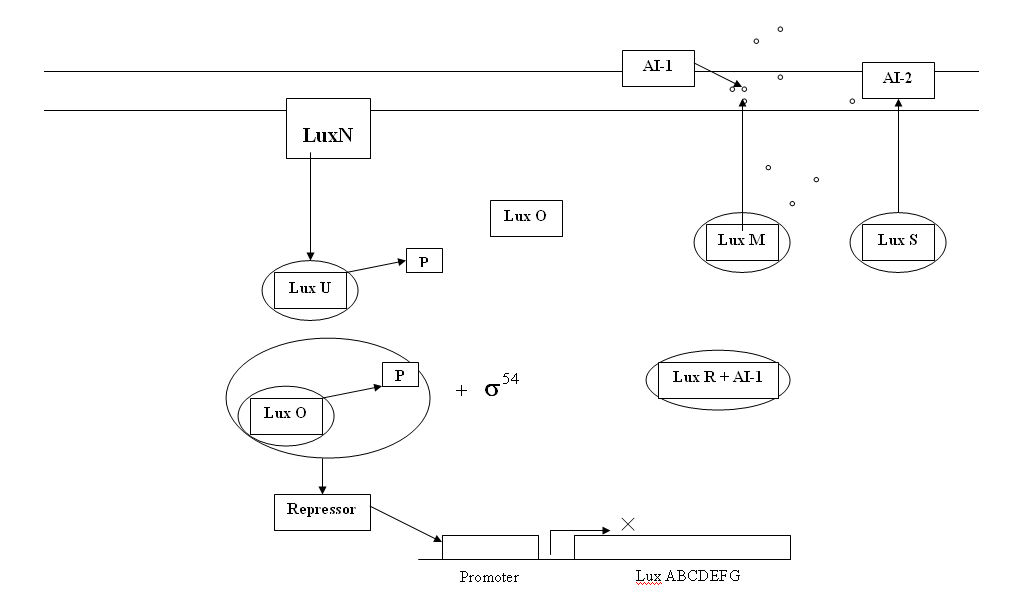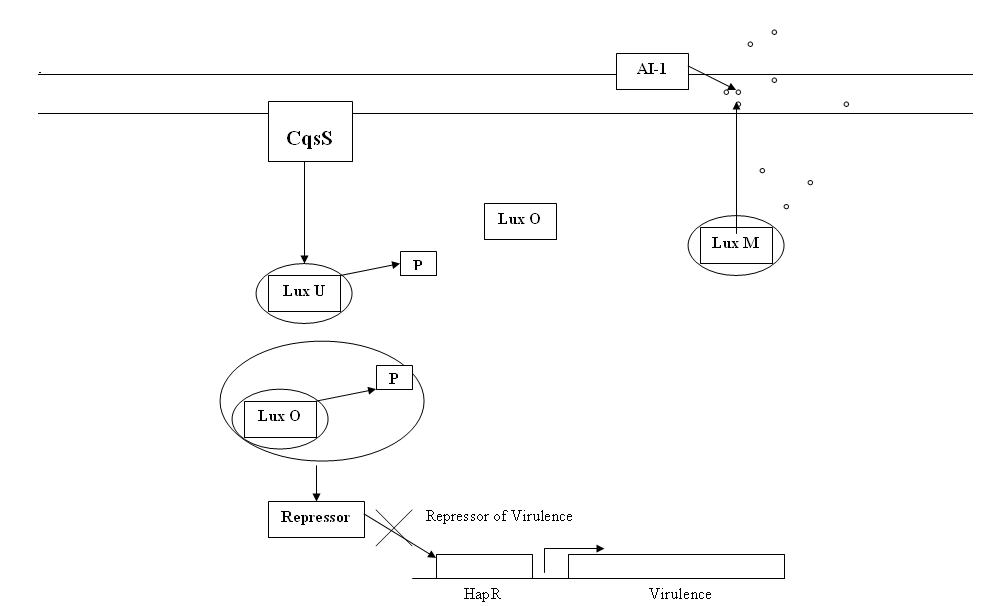University of Sheffield/18 July 2008
From 2008.igem.org
(Difference between revisions)
m |
m |
||
| Line 32: | Line 32: | ||
==Conclusion== | ==Conclusion== | ||
| - | As we intend to modify the E-Coli in a way so that its receptor can sense ''V.Cholera & Legionella''. The problem here is | + | As we intend to modify the E-Coli in a way so that its receptor can sense ''V.Cholera & Legionella''. The problem here is both V.Cholera and Legionella have cascading pathways where reactions take place in a series of steps whereas in E.Coli all reactions are simultaneous. So we might have to introduce '''TWO''' plasmids in E.Coli to perform the job. |
Revision as of 20:29, 19 July 2008
Conclusion
As we intend to modify the E-Coli in a way so that its receptor can sense V.Cholera & Legionella. The problem here is both V.Cholera and Legionella have cascading pathways where reactions take place in a series of steps whereas in E.Coli all reactions are simultaneous. So we might have to introduce TWO plasmids in E.Coli to perform the job.
 "
"

